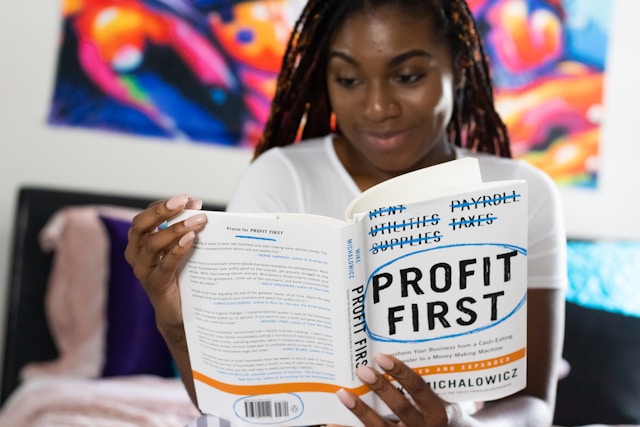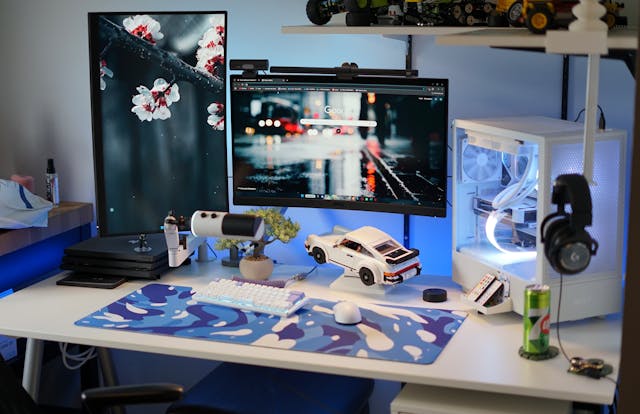Turning a hobby into a business isn’t just about adding a price tag to what you love doing. It’s about fundamentally changing the way you think. Most people see hobbies as casual pastimes, something to enjoy after work or on weekends. But if you want to turn your passion into profit, that mindset has to change. Successful entrepreneurs don’t treat hobbies as distractions. They view them as untapped assets with real potential to create income and impact.
This mindset shift doesn’t happen overnight. At first, it can feel odd charging for something you once did for free. You may question whether anyone would pay you. But understand this: value isn’t defined by your comfort zone; it’s defined by what someone else is willing to pay for your skill, product, or service. Once you make that mental leap, everything changes. Your hobby stops being just a personal escape and starts becoming a tool for financial freedom.
Below are proven blueprints that can turn your hobby into a profitable business.
Validate Before You Monetize
Before you turn your hobby into a business, you need to answer one question: Does anyone else care? Validation means finding out whether there’s a real market for what you offer. Start small. Test demand before going all in. Sell a few products on Etsy, offer services on Fiverr, or post sample work on Instagram and TikTok. Ask for feedback. Did people engage, comment, or ask to buy more? If not, don’t panic. It might just mean you need to refine your offer.
Market validation doesn’t require a full business plan or a fancy launch. It requires action, observation, and the willingness to pivot based on what you learn. The goal is to reduce guesswork. Passion alone isn’t enough. Profit comes from solving real problems or delivering value that people want.
Choose a Business Model That Fits You
Not all hobbies should be monetized the same way. The right model depends on your personality, strengths, and lifestyle.
Are you a creator who loves crafting unique pieces? Consider e-commerce through platforms like Etsy or Shopify. Do you enjoy teaching others your skills? Launch a course, host workshops, or build a YouTube channel. Prefer a hands-off approach? Turn your expertise into a digital product like an ebook or template pack. There is no universal “best” model, only the one that fits your flow. The more your business aligns with your natural energy, the more likely you are to stick with it long-term. And the longer you stick with it, the greater the chance it becomes profitable.
Build While You Work
You don’t need to quit your job to start turning your hobby into a business. Most successful hobby-preneurs began while still working full time. They carved out weekends, lunch breaks, and evenings to test, create, and launch. This approach gives you freedom to experiment without financial pressure. You’ll make better decisions when your rent doesn’t depend on one sale. Plus, you can reinvest early profits back into growth, like new tools, branding, or ad testing, without sacrificing your basic needs.
Use this time wisely. Create systems early. Document what works. Track income and expenses. Build routines so that once the side income grows, you’re ready to scale without chaos.
Real-World Examples That Prove It’s Possible
- A nurse turned her love of baking into a six-figure cookie business by starting with small neighborhood orders and documenting her journey online.
- A gamer built a Twitch channel by streaming nightly and sharing tutorials. Within a year, they were earning more from tips, sponsorships, and merch than their 9–5 job.
- A graphic designer began selling Notion templates for fun. After a few viral tweets, that side hobby became a full-time passive income stream.
These aren’t anomalies; they’re blueprints. And they all started with a small step: deciding their time and talent were worth charging for.
Master the Marketing Game
No matter how amazing your product or service is, people won’t find it by accident. You need to put yourself out there. Marketing is not about manipulation; it’s about visibility and connection. Start by building where attention already exists. TikTok, Instagram, and Pinterest work especially well for visual hobbies. Twitter and LinkedIn are better for writing, coaching, or tech-focused skills. You don’t need to be everywhere, just where your audience already hangs out.
Focus on storytelling. Share your process. Show the behind-the-scenes. Let people connect with your personality and passion. People don’t just buy products; they buy into people.
Pricing with Confidence
This is where most hobbyists stumble. They undercharge or give away too much for free. Pricing isn’t about guessing or guilt. It’s about value, positioning, and clarity.
If you’re offering something unique or handmade, don’t compete on price. Compete on meaning. If you’re solving a real problem, price according to the result, not the time it took you to create it. Most people are happy to pay a premium if they feel seen, heard, or helped. Charge what makes the work worth doing. If your hobby becomes a burden because you’re underpaid, the joy will disappear. Protect your passion by pricing it properly.
Turn Feedback Into Fuel
Not every review will be glowing. That’s okay. Every piece of feedback, good or bad, is data. Use it to refine your offer, your process, your pitch. Listen closely to what your customers say they loved, hated, or wished for. Ask questions. Follow up. Over time, you’ll build something that not only reflects your passion but also fits real demand.
This iterative mindset separates hobbyists from entrepreneurs. One sees feedback as criticism; the other sees it as free market research.
The Long Game: From Side Hustle to Business
At some point, your hobby may grow into something more than a side hustle. You’ll start making consistent income. You’ll gain repeat customers. You’ll begin to outsource small tasks so you can focus on what you do best.
This transition doesn’t happen overnight. It’s the result of steady action, consistent delivery, and learning as you go. But the day will come when you realize: your hobby isn’t just fun anymore—it’s funding your life. At that point, you’ve crossed the line. You’ve become not just a creator, but a business owner
- Graphic Design for Beginners: Best Tools & Tips to Start in 2026 - February 22, 2026
- How to Start a Blog in 2026 and Turn It Into a Steady Income Stream - November 10, 2025
- 2026: The Business Sectors Creating the Next Wave of Millionaires—How to Tap into - November 6, 2025








